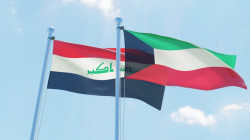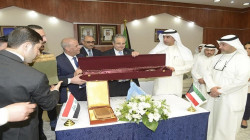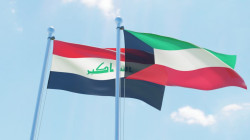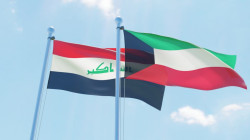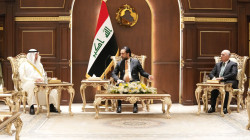Joint ministerial meeting calls on Iraq to respect Kuwait's sovereignty
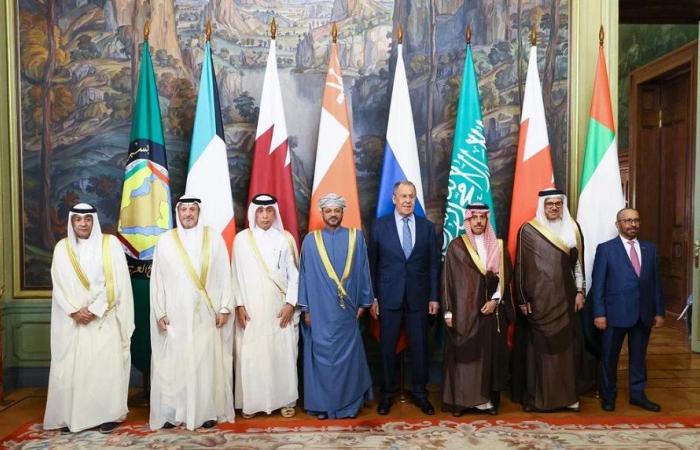
Shafaq News / The sixth joint ministerial meeting of the Strategic Dialogue between the Gulf Cooperation Council (GCC) countries and Russia, held in Moscow, concluded with a call on Iraq to uphold Kuwait's sovereignty and refrain from violating international resolutions and agreements, particularly UN Security Council Resolution 833, which concerns the demarcation of borders between the two countries and the Convention on the Regulation of Maritime Navigation in the Khawr Abd Allah.
The meeting was chaired by the Minister of Foreign Affairs of the Sultanate of Oman, Badr bin Hamad bin Hamoud Al-Busaidi, representing the GCC side, while the Russian Foreign Minister, Sergey Lavrov, chaired the Russian side. The meeting was attended by the foreign ministers of the GCC countries, along with the Secretary-General of the GCC, Jassim Mohammed Abdullah Al-Bedewi.
According to the concluding statement issued after the Moscow meeting, the ministers emphasized the importance of Iraq's commitment to Kuwait's sovereignty and non-violation of international resolutions and agreements, particularly UN Security Council Resolution 833 and the Convention on the Regulation of Maritime Navigation in the Khawr Abd Allah, which have been deposited with the United Nations. The ministers emphasized the need to complete the demarcation of maritime borders between the Republic of Iraq and the State of Kuwait beyond Marker 162.
The ministers expressed their support for UN Security Council Resolution 2107, which refers the file of prisoners, missing persons, Kuwaiti properties, and the national archives to the United Nations Assistance Mission for Iraq (UNAMI). They expressed their hope for continued cooperation by Iraq to ensure progress in all files, and called on Iraq and the United Nations to make every effort to reach a resolution regarding these issues.
Furthermore, the ministers welcomed the agreement between the Kingdom of Saudi Arabia and the Islamic Republic of Iran, facilitated by the Sultanate of Oman, the Republic of Iraq, and the People's Republic of China, which includes the resumption of diplomatic relations between the two countries. They expressed their hope that this agreement would serve as a positive step towards resolving disputes and ending all regional conflicts through dialogue and diplomatic means.
The ministers stressed the importance of maintaining relations between nations based on understanding, mutual respect, good neighborliness, respect for sovereignty, and non-interference in internal affairs, while adhering to the principles of the United Nations Charter and international laws and norms.
They affirmed the importance of reducing escalation and implementing confidence-building measures among the countries of the region to enhance and ensure security in this strategically important area of the world.
The ministers also emphasized the importance of maintaining maritime security and the security of waterways in the region, as well as countering threats to maritime navigation, international trade, and oil facilities in the GCC countries.
Regarding Syria, the ministers underscored the importance of preserving the territorial integrity, independence, unity, and sovereignty of the Syrian Arab Republic. They expressed their support for the efforts of the UN Special Envoy for Syria, Geir O. Pedersen, and emphasized the need for further international efforts to support the UN's mediation in the Syrian peace process, in accordance with relevant Security Council resolutions.
The ministers highlighted the importance of the Syrian Constitutional Committee and expressed their support for the efforts to provide care for Syrian refugees and internally displaced persons, as well as working towards ensuring their safe return to their cities and villages in accordance with international standards.
Furthermore, the ministers strongly rejected any attempts to bring about demographic changes in Syria. Additionally, they emphasized the importance of ensuring unhindered access to humanitarian assistance for all Syrians in need throughout the country.
To assist in improving the humanitarian situation in Syria and advancing the political settlement, the ministers called on the international community, the United Nations, and its humanitarian agencies to increase their support for Syria.
Moreover, the ministers welcomed the Arab efforts to resolve the crisis in Syria on a step-by-step basis, as agreed upon during the Amman meeting on May 1, 2023, regarding the Syrian crisis. They also welcomed the decision of the Arab League regarding the resumption of the Syrian government's participation in the meetings of the League's institutions. The ministers expressed their hope that the Syrian government would take the initiative and initiate all necessary steps to reach a comprehensive solution to the crisis.
